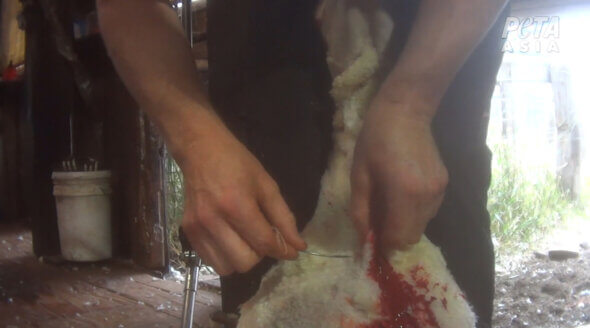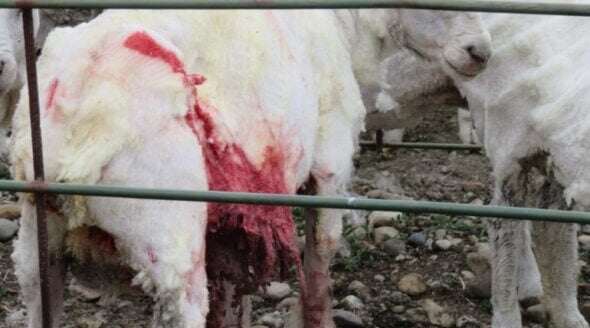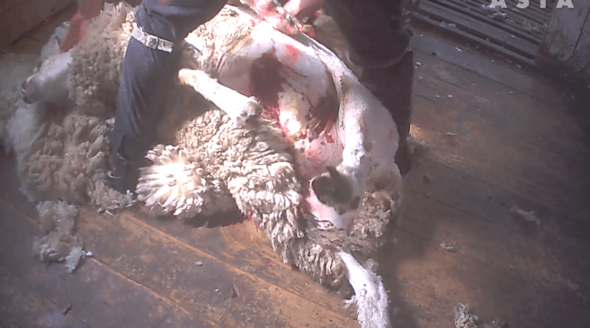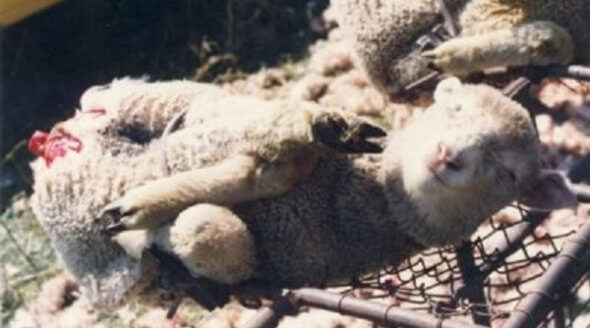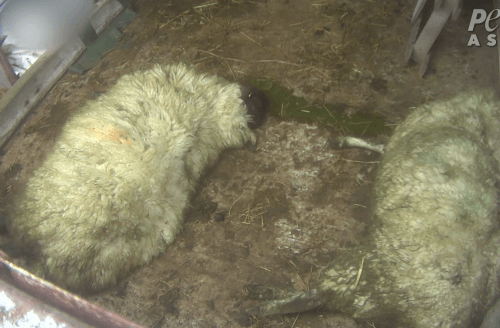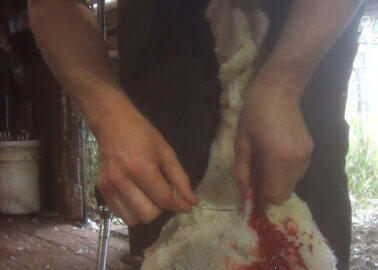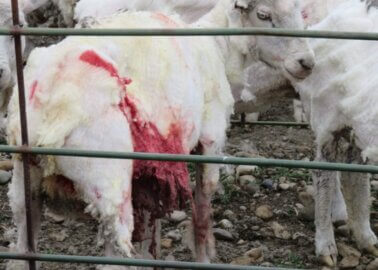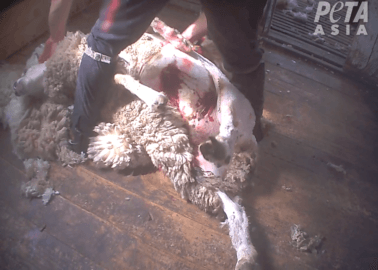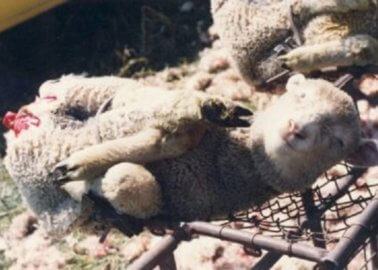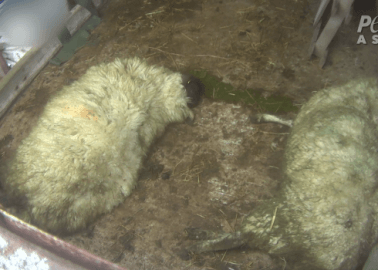Is Your Wool Jumper Worth This?
During fast, aggressive shearing, this ewe sustained a deep cut. Sheep are rarely given pain relief, even for serious wounds. She must have been in agony.
This is a standard practice that the Australian wool industry doesn’t want you to see. Her suffering is further proof that the wool industry only cares about money.
Is your wool jumper worth this?
Why Vegans Don’t Wear Wool
PETA entities have released dozens of videos documenting cruelty to sheep at 117 wool-industry facilities around the world. Watch the 14 video exposés here.
In England, workers kicked, punched, and stamped on sheep’s heads, jabbing them in the face with sharp metal clippers and leaving huge gashes on their bodies that were later crudely sewn up with a needle and thread – all without any painkillers.
And it’s not just the shearing process that’s cruel. Farmers, also often without pain relief, use knives, hot irons, or tight clamps to sever parts of the animals’ bodies. The ears of lambs who are just a few weeks old are hole-punched, and their tails are cut off.
In shearing sheds, workers race against the clock because they’re paid by volume, not by the hour, which encourages rushed and rough shearing.
To make matters worse, sheep are prey animals who are instinctively terrified of being pinned down. The shearing process is stressful for them, making the shearer’s job more difficult, as the animals sometimes make desperate attempts to escape.
Hours of eyewitness footage compiled by PETA over the years show how shearers hit sheep with closed fists and electric clippers, kneel on their necks with their full weight, and slam them into the floor.
How Much Do You Know About Wool?
Sheep “need” shearing only because the wool industry breeds them to grow an unnaturally heavy coat. Native breeds are able to regulate their body temperature without human interference and naturally shed their hair when the weather gets warmer.
The shearing process is usually a violent and terrifying experience for sheep. Shearers are paid by volume, not by the hour, which encourages fast, rough handling that leaves gaping wounds on the animals’ bodies.
All wool – no matter where it originates or what “ethical” or “responsibly sourced” claims its label bears – spells extreme suffering and a terrifying death for millions of sheep and lambs.
Find out everything you need to know about wool here.
What You Can Do
The best thing you can do is buy vegan fabrics and tell big brands to stand by their “sustainability” claims by dropping wool:

